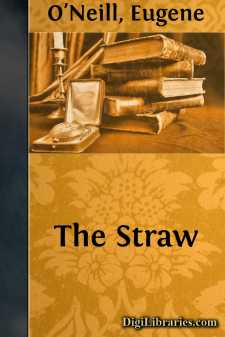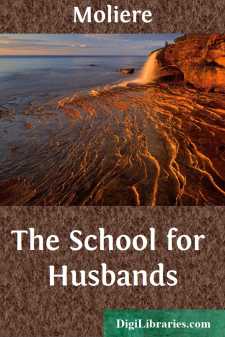Drama Books
Sort by:
CHRISTOPHER MARLOWE The first great English poet was the father of English tragedy and the creator of English blank verse. Chaucer and Spenser were great writers and great men: they shared between them every gift which goes to the making of a poet except the one which alone can make a poet, in the proper sense of the word, great. Neither pathos nor humor nor fancy nor invention will suffice for that:...
more...
by:
Samuel Low
Very little is known about the author of "The Politician Out-witted," a play which I have selected as representative of the efforts of the American drama, as early as 1789, to reflect the political spirit of the time. Assiduous search on the part of the present editor has failed to bring to light any information from any of the historical societies regarding Mr. Low, except that he was born on...
more...
DRAMATIS PERSONÆ. Duke of Milan, Father to Silvia.Valentine,the two Gentlemen.Proteus,Antonio, Father to Proteus. Thurio, a foolish rival to Valentine. Eglamour, Agent for Silvia in her escape. Host, where Julia lodges. Outlaws, with Valentine. Speed, a clownish Servant to Valentine. Launce, the like to Proteus. Panthino, Servant to Antonio. Julia, beloved of Proteus. Silvia, beloved of Valentine....
more...
by:
Eugene O'Neill
Act One Act One: Scene One The kitchen of the Carmody home on the outskirts of a manufacturing town in Connecticut. On the left, forward, the sink. Farther back, two windows looking out on the yard. In the left corner, rear, the icebox. Immediately to the right of it, in the rear wall, a window opening on the side porch. To the right of this, a china cupboard, and a door leading into the hall where the...
more...
by:
Joseph Conrad
ONE DAY MORE SCENE I. CURTAIN RISES DISCLOSING CARVIL and Bessie moving away from sea-wall. Bessie about twenty-five. Black dress; black straw hat. A lot of mahogany-coloured hair loosely done up. Pale face. Full figure. Very quiet. Carvil, blind, unwieldy. Reddish whiskers; slow, deep voice produced without effort. Immovable, big face. Carvil (Hanging heavily on Bessie's arm). Careful! Go slow!...
more...
by:
Bernard Shaw
ACT I At the most wretched hour between a black night and a wintry morning in the year 1777, Mrs. Dudgeon, of New Hampshire, is sitting up in the kitchen and general dwelling room of her farm house on the outskirts of the town of Websterbridge. She is not a prepossessing woman. No woman looks her best after sitting up all night; and Mrs. Dudgeon's face, even at its best, is grimly trenched by the...
more...
by:
Hannah More
ACT THE FIRST. SCENE I. A GOTHIC HALL. Enter Edric and Birtha. Bir.What may this mean? Earl Douglas has enjoin'd theeTo meet him here in private?Edr.Yes, my sister,And this injunction I have oft receiv'd;But when he comes, big with some painful secret,He starts, looks wild, then drops ambiguous hints,Frowns, hesitates, turns pale, and says 'twas nothing;Then feigns to smile, and by his...
more...
ACT I. SCENE: [Country public-house or shebeen, very rough and untidy. There is a sort of counter on the right with shelves, holding many bottles and jugs, just seen above it. Empty barrels stand near the counter. At back, a little to left of counter, there is a door into the open air, then, more to the left, there is a settle with shelves above it, with more jugs, and a table beneath a window. At the...
more...
HOW TO BE A GOOD RADIO ACTOR The play in this book has actually been produced on the radio. Possibly you have listened to this one when you tuned in at home. The persons whose voices you heard as you listened, looked just as they did when they left their homes to go to the studio, although they were taking the parts of men and women who lived long ago and who wore costumes very different from the ones...
more...
by:
Moliere
ACT I. SCENE I.—SGANARELLE, ARISTE. SGAN. Pray, brother, let us talk less, and let each of us live as he likes. Though you have the advantage of me in years, and are old enough to be wise, yet I tell you that I mean to receive none of your reproofs; that my fancy is the only counsellor I shall follow, and that I am quite satisfied with my way of living. AR. But every one condemns it. SGAN. Yes, fools...
more...











